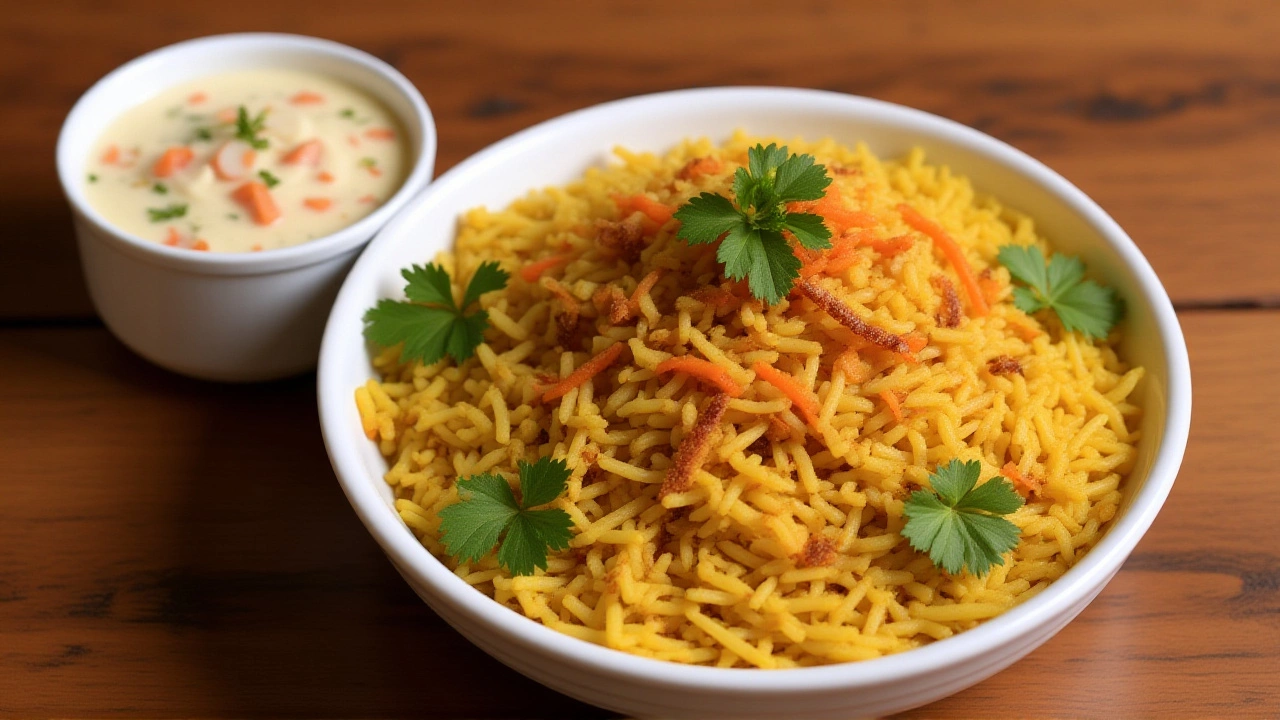Food – Trends, Recipes and Fresh Insights
When talking about Food, the broad category of edible items that fuel our bodies and culture. Also known as cuisine, it shapes daily routines, celebrations, and memories. In today’s fast‑changing palate, Food isn’t just sustenance; it’s a conversation starter and a way to express identity. From street stalls to high‑end kitchens, the choices we make tell a story about where we live, what we value, and how we connect with others.
Why Food Trends Matter
One buzzworthy example is Vegetarian Biryani, a spice‑rich layered rice dish that skips meat but keeps all the flavor. It shows how tradition can evolve without losing its heart. A close cousin, Soya Chaap, a protein‑packed soy‑based cutlet that mimics meat's texture, has become a staple for veg lovers looking for a hearty bite. Both dishes prove that “Food encompasses comfort and creativity” and that “Food requires quality spices to shine”.
Enter Ranveer Brar, celebrity chef known for blending Indian heritage with modern twists. His latest launch of a restaurant‑style Soya Chaap Biryani demonstrates how “Ranveer Brar influences modern Indian cuisine” and how “Chef collaborations drive food innovation”. Partnering with Everest Spices, a brand that curates authentic Indian spice blends, the duo created a ready‑to‑cook kit that brings restaurant flavor to the home kitchen.
What makes this collaboration stand out is the focus on accessibility. By packaging the spice blend and instructions, they remove the intimidation factor often associated with biryani preparation. This aligns with the idea that “Food requires the right tools to be approachable”. Home cooks can now achieve the depth of flavor once reserved for professional chefs, and the scent of saffron‑infused rice can fill any modest apartment.
Beyond taste, there’s a health narrative at play. Vegetarian biryani packed with vegetables, legumes, and soy‑based protein offers a balanced profile of carbs, fiber, and plant‑based protein. For those tracking macros or seeking a lighter indulgence, the dish delivers satisfaction without the heaviness of traditional meat‑laden versions. In this sense, “Food influences wellness choices” and supports a growing demand for nutritious yet flavorful meals.
From a cultural lens, biryani has always been a communal dish, served at celebrations and family gatherings. By reinventing it with a vegetarian twist, chefs are honoring heritage while inviting new participants—especially those who avoid meat for personal or religious reasons—to join the feast. This evolution illustrates how “Food reflects societal shifts” and how inclusive menus foster community bonding.
Social media amplifies these trends. Short videos of the biryani’s bubbling pot, the crisp exterior of Soya Chaap, and the final plating go viral, encouraging others to try the recipe. The feedback loop between chefs, spice brands, and home cooks accelerates innovation, proving that “Food drives digital engagement” and that people love sharing kitchen successes.
Below you’ll find a curated collection of articles that dig deeper into these topics. From step‑by‑step guides on making the perfect veg biryani to behind‑the‑scenes stories of Chef Ranveer Brar’s creative process, the posts offer practical tips, flavor insights, and inspiration to level up your cooking game. Dive in and discover how everyday ingredients can rewrite the rules of taste.
Posted by
Gerald Mathers
0 Comments

Celebrity chef Ranveer Brar teams with Everest Spices to launch a restaurant‑style Soya Chaap Biryani, offering veg eaters a flavorful, spice‑coated biryani alternative.
read more